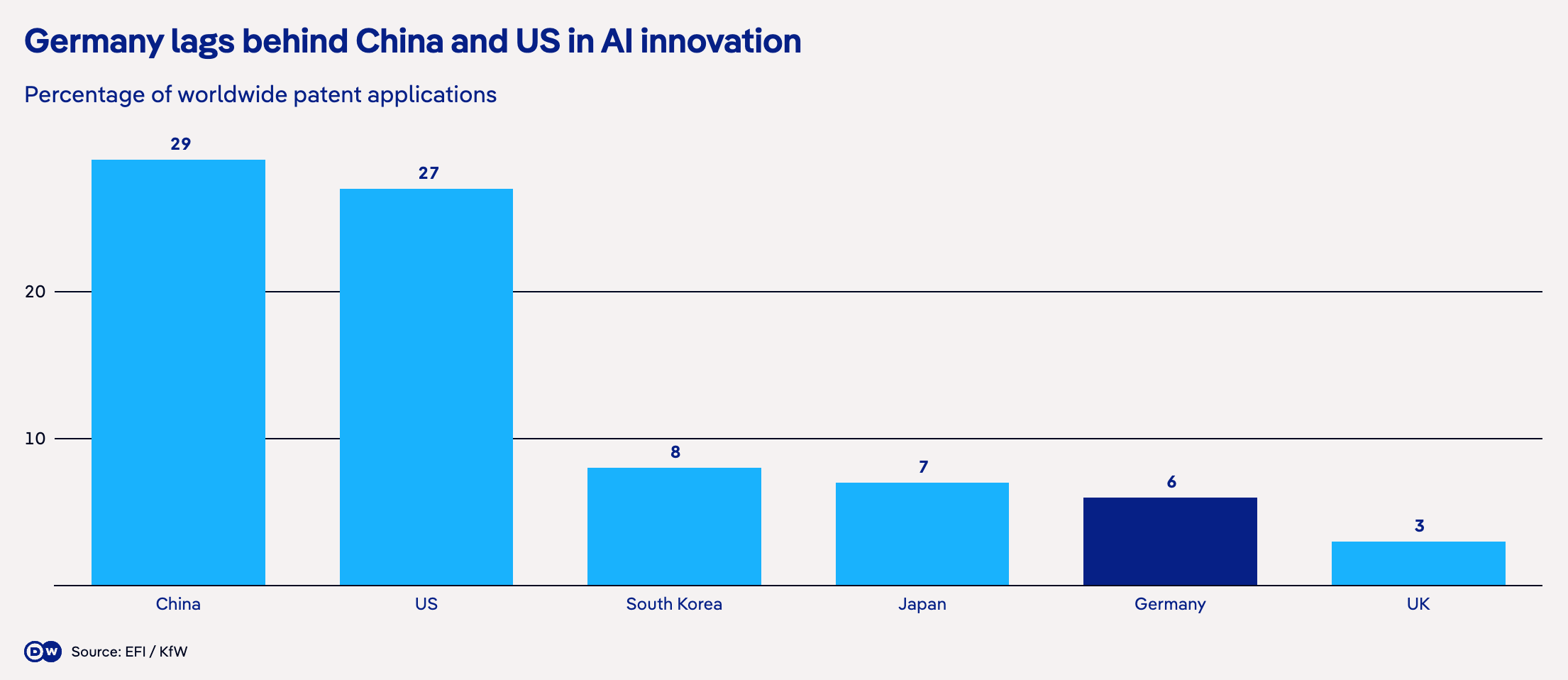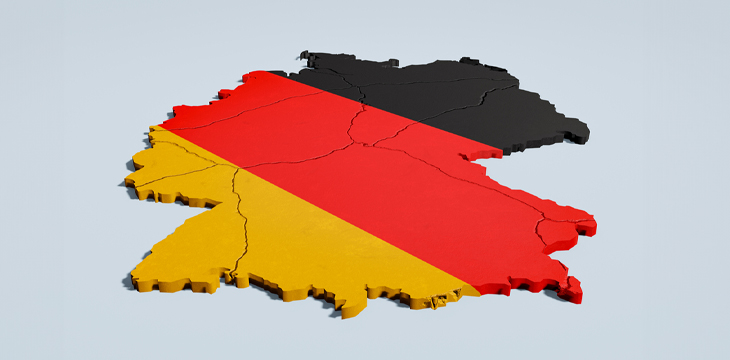|
Getting your Trinity Audio player ready...
|
Germany has failed to keep up with global artificial intelligence (AI) leaders, and the gap is widening, says the country’s state-owned development bank KfW.
German scientists have been researching AI for decades and have made significant contributions to the industry. However, this expertise has failed to translate into real-world applications, says Fritzi Köhler-Geib, the chief economist at the Frankfurt-based bank.
“With AI, as with many other areas of technology, we struggle to translate research into products that can be used by businesses,” he told state-owned broadcaster DW.
Germany is not alone in its struggle to keep up with AI advances. Other European countries haven’t fared much better, with the U.K.’s AI skills proficiency ranked a distant 45th globally. The U.K. also lags behind France and Germany in AI investment.
France has been a brighter spot, with some startups, such as Paris-based Mistral AI, raising $645 million at a $6 billion valuation last month. French AI startups have raised over $2.3 billion, the most in Europe.
Still, European nations have lost out to Asia and North America in AI. Data from KfW shows that the US and China collectively control over half of all global AI patents. Germany is a distant fifth, ranking behind South Korea and Japan as well.

For Germany, its sluggish progress in AI development leaves its people at the mercy of companies based in other regions. With China and the U.S. seemingly ready to keep investing in the technology for years, Germany, and Europe in general, could lose out yet again on the opportunity to be technologically self-sufficient.
It could get worse for Germany, says Alexander Löser, a data science professor at the Berlin University of Applied Sciences and Technology. He pointed out that Germany is increasingly losing its best talent to Silicon Valley and other global AI hotspots, which could spell doom for the country’s ambitions down the road.
“Many universities here do excellent research and train highly qualified people, but a significant number of them then choose to work abroad,” he said.
The EU’s stringent data laws add to the problem, Löser noted. It’s much costlier to acquire training data in the EU, which is the lifeblood of AI development. The recent clash between Meta (NASDAQ: META) and EU regulators over its attempt to use Facebook and Instagram data to train its AI is the latest demonstration of the region’s strict data laws.
In order for artificial intelligence (AI) to work right within the law and thrive in the face of growing challenges, it needs to integrate an enterprise blockchain system that ensures data input quality and ownership—allowing it to keep data safe while also guaranteeing the immutability of data. Check out CoinGeek’s coverage on this emerging tech to learn more why Enterprise blockchain will be the backbone of AI.
Watch: AI is for ‘augmenting’ not replacing the workforce

 02-25-2026
02-25-2026 




